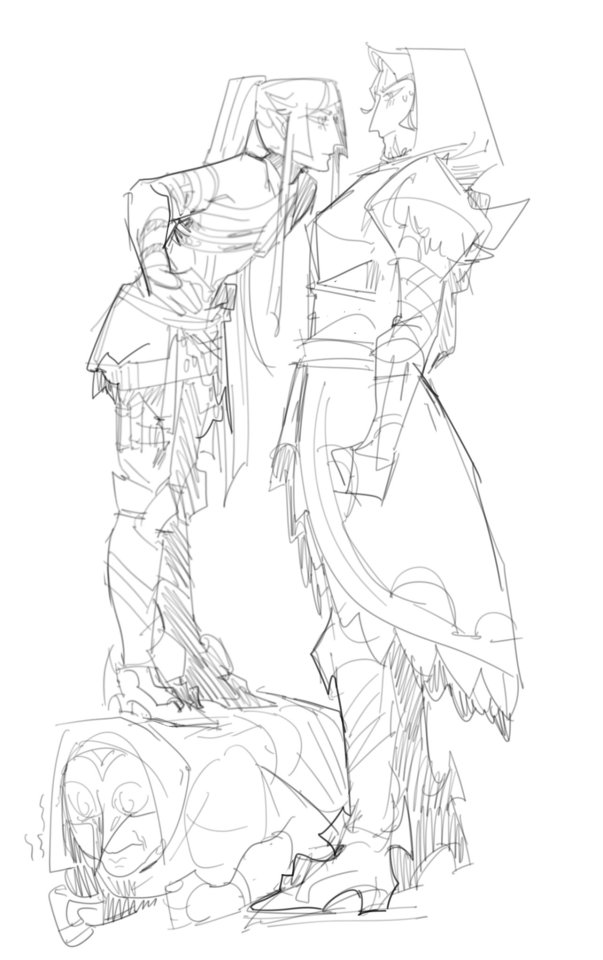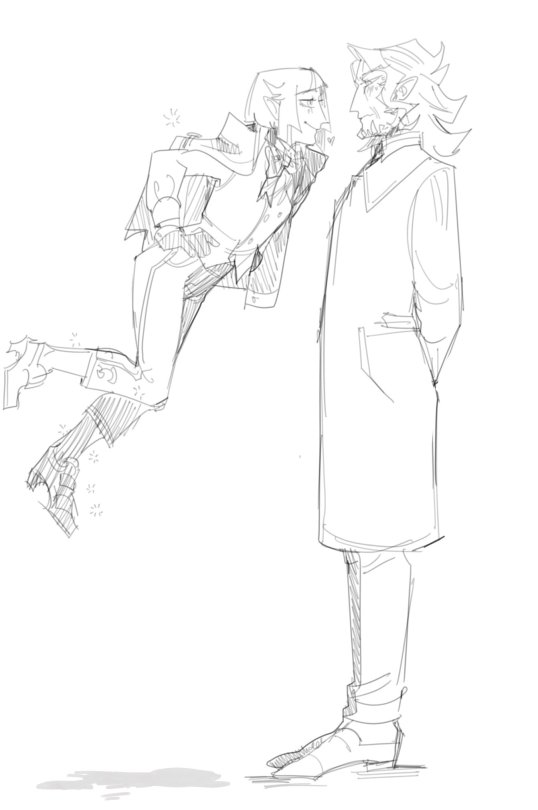#Generators on Rent
Explore tagged Tumblr posts
Text
#Generators on Rent#Generators on Rent in Gurgaon#Generators on Rent in Gurugram#Generators on Hire#Generators on Hire in Gurgaon#Generators on Hire in Gurugram#CPCB4 generator on rent#generator for industrial use#generator for events#Green Gen Sets on rent
0 notes
Text


hmmmm nothing changes between these grandpas
#twisted wonderland#twst#uhhhhhhhh#lilibaul#old man yaoi lives rent free in my head btw#lilia vanrouge#disney twisted wonderland#artists on tumblr#general lilia#twst baul#baul zigvolt#granpas..............#twst fanart#tacc0yak1art
5K notes
·
View notes
Text




love is stored in the hands that hold each other. it is stored in the hands that create art. it is stored in the hands that have the power to harm but don’t. (x)
#thkedit#the heart killers#bisonkant#kantbison#the heartkillers#thk bison#thk kant#asianlgbtqdramas#tuserrowan#userjamiec#userbon#tusersilence#tuserhidden#fordaniseyes#my gifs#my edits#mine: the heart killers#mine: kantbison#hands HanDS hANDS#i love khaotung's hands i love hands in general but sdkfjgsd#anyway this quote lives in my head rent-free and has for years#i couldn't *not* use it
434 notes
·
View notes
Text

Bonnie in the real world 💖
#five nights at freddy's#fnaf#glamrock bonnie#fnaf ruin#fnaf security breach#arts#obligatory ‘’i’m sure this has been done before’’#showing up fashionably late to the barbie memes party#but this really is like. the core of my fanon interpretation of him and the glamrocks in general#one day i’ll write the fucked up melodrama fic that lives rent free in my head about this very topic
7K notes
·
View notes
Text
Autoenshittification

Forget F1: the only car race that matters now is the race to turn your car into a digital extraction machine, a high-speed inkjet printer on wheels, stealing your private data as it picks your pocket. Your car’s digital infrastructure is a costly, dangerous nightmare — but for automakers in pursuit of postcapitalist utopia, it’s a dream they can’t give up on.
Your car is stuffed full of microchips, a fact the world came to appreciate after the pandemic struck and auto production ground to a halt due to chip shortages. Of course, that wasn’t the whole story: when the pandemic started, the automakers panicked and canceled their chip orders, only to immediately regret that decision and place new orders.
But it was too late: semiconductor production had taken a serious body-blow, and when Big Car placed its new chip orders, it went to the back of a long, slow-moving line. It was a catastrophic bungle: microchips are so integral to car production that a car is basically a computer network on wheels that you stick your fragile human body into and pray.
The car manufacturers got so desperate for chips that they started buying up washing machines for the microchips in them, extracting the chips and discarding the washing machines like some absurdo-dystopian cyberpunk walnut-shelling machine:
https://www.autoevolution.com/news/desperate-times-companies-buy-washing-machines-just-to-rip-out-the-chips-187033.html
These digital systems are a huge problem for the car companies. They are the underlying cause of a precipitous decline in car quality. From touch-based digital door-locks to networked sensors and cameras, every digital system in your car is a source of endless repair nightmares, costly recalls and cybersecurity vulnerabilities:
https://www.reuters.com/business/autos-transportation/quality-new-vehicles-us-declining-more-tech-use-study-shows-2023-06-22/
What’s more, drivers hate all the digital bullshit, from the janky touchscreens to the shitty, wildly insecure apps. Digital systems are drivers’ most significant point of dissatisfaction with the automakers’ products:
https://www.theverge.com/23801545/car-infotainment-customer-satisifaction-survey-jd-power
Even the automakers sorta-kinda admit that this is a problem. Back in 2020 when Massachusetts was having a Right-to-Repair ballot initiative, Big Car ran these unfuckingbelievable scare ads that basically said, “Your car spies on you so comprehensively that giving anyone else access to its systems will let murderers stalk you to your home and kill you:
https://pluralistic.net/2020/09/03/rip-david-graeber/#rolling-surveillance-platforms
But even amid all the complaining about cars getting stuck in the Internet of Shit, there’s still not much discussion of why the car-makers are making their products less attractive, less reliable, less safe, and less resilient by stuffing them full of microchips. Are car execs just the latest generation of rubes who’ve been suckered by Silicon Valley bullshit and convinced that apps are a magic path to profitability?
Nope. Car execs are sophisticated businesspeople, and they’re surfing capitalism’s latest — and last — hot trend: dismantling capitalism itself.
Now, leftists have been predicting the death of capitalism since The Communist Manifesto, but even Marx and Engels warned us not to get too frisky: capitalism, they wrote, is endlessly creative, constantly reinventing itself, re-emerging from each crisis in a new form that is perfectly adapted to the post-crisis reality:
https://www.nytimes.com/2022/10/31/books/review/a-spectre-haunting-china-mieville.html
But capitalism has finally run out of gas. In his forthcoming book, Techno Feudalism: What Killed Capitalism, Yanis Varoufakis proposes that capitalism has died — but it wasn’t replaced by socialism. Rather, capitalism has given way to feudalism:
https://www.penguin.co.uk/books/451795/technofeudalism-by-varoufakis-yanis/9781847927279
Under capitalism, capital is the prime mover. The people who own and mobilize capital — the capitalists — organize the economy and take the lion’s share of its returns. But it wasn’t always this way: for hundreds of years, European civilization was dominated by rents, not markets.
A “rent” is income that you get from owning something that other people need to produce value. Think of renting out a house you own: not only do you get paid when someone pays you to live there, you also get the benefit of rising property values, which are the result of the work that all the other homeowners, business owners, and residents do to make the neighborhood more valuable.
The first capitalists hated rent. They wanted to replace the “passive income” that landowners got from taxing their serfs’ harvest with active income from enclosing those lands and grazing sheep in order to get wool to feed to the new textile mills. They wanted active income — and lots of it.
Capitalist philosophers railed against rent. The “free market” of Adam Smith wasn’t a market that was free from regulation — it was a market free from rents. The reason Smith railed against monopolists is because he (correctly) understood that once a monopoly emerged, it would become a chokepoint through which a rentier could cream off the profits he considered the capitalist’s due:
https://locusmag.com/2021/03/cory-doctorow-free-markets/
Today, we live in a rentier’s paradise. People don’t aspire to create value — they aspire to capture it. In Survival of the Richest, Doug Rushkoff calls this “going meta”: don’t provide a service, just figure out a way to interpose yourself between the provider and the customer:
https://pluralistic.net/2022/09/13/collapse-porn/#collapse-porn
Don’t drive a cab, create Uber and extract value from every driver and rider. Better still: don’t found Uber, invest in Uber options and extract value from the people who invest in Uber. Even better, invest in derivatives of Uber options and extract value from people extracting value from people investing in Uber, who extract value from drivers and riders. Go meta.
This is your brain on the four-hour-work-week, passive income mind-virus. In Techno Feudalism, Varoufakis deftly describes how the new “Cloud Capital” has created a new generation of rentiers, and how they have become the richest, most powerful people in human history.
Shopping at Amazon is like visiting a bustling city center full of stores — but each of those stores’ owners has to pay the majority of every sale to a feudal landlord, Emperor Jeff Bezos, who also decides which goods they can sell and where they must appear on the shelves. Amazon is full of capitalists, but it is not a capitalist enterprise. It’s a feudal one:
https://pluralistic.net/2022/11/28/enshittification/#relentless-payola
This is the reason that automakers are willing to enshittify their products so comprehensively: they were one of the first industries to decouple rents from profits. Recall that the reason that Big Car needed billions in bailouts in 2008 is that they’d reinvented themselves as loan-sharks who incidentally made cars, lending money to car-buyers and then “securitizing” the loans so they could be traded in the capital markets.
Even though this strategy brought the car companies to the brink of ruin, it paid off in the long run. The car makers got billions in public money, paid their execs massive bonuses, gave billions to shareholders in buybacks and dividends, smashed their unions, fucked their pensioned workers, and shipped jobs anywhere they could pollute and murder their workforce with impunity.
Car companies are on the forefront of postcapitalism, and they understand that digital is the key to rent-extraction. Remember when BMW announced that it was going to rent you the seatwarmer in your own fucking car?
https://pluralistic.net/2020/07/02/big-river/#beemers
Not to be outdone, Mercedes announced that they were going to rent you your car’s accelerator pedal, charging an extra $1200/year to unlock a fully functional acceleration curve:
https://www.theverge.com/2022/11/23/23474969/mercedes-car-subscription-faster-acceleration-feature-price
This is the urinary tract infection business model: without digitization, all your car’s value flowed in a healthy stream. But once the car-makers add semiconductors, each one of those features comes out in a painful, burning dribble, with every button on that fakakta touchscreen wired directly into your credit-card.
But it’s just for starters. Computers are malleable. The only computer we know how to make is the Turing Complete Von Neumann Machine, which can run every program we know how to write. Once they add networked computers to your car, the Car Lords can endlessly twiddle the knobs on the back end, finding new ways to extract value from you:
https://doctorow.medium.com/twiddler-1b5c9690cce6
That means that your car can track your every movement, and sell your location data to anyone and everyone, from marketers to bounty-hunters looking to collect fees for tracking down people who travel out of state for abortions to cops to foreign spies:
https://www.vice.com/en/article/n7enex/tool-shows-if-car-selling-data-privacy4cars-vehicle-privacy-report
Digitization supercharges financialization. It lets car-makers offer subprime auto-loans to desperate, poor people and then killswitch their cars if they miss a payment:
https://www.youtube.com/watch?v=4U2eDJnwz_s
Subprime lending for cars would be a terrible business without computers, but digitization makes it a great source of feudal rents. Car dealers can originate loans to people with teaser rates that quickly blow up into payments the dealer knows their customer can’t afford. Then they repo the car and sell it to another desperate person, and another, and another:
https://pluralistic.net/2022/07/27/boricua/#looking-for-the-joke-with-a-microscope
Digitization also opens up more exotic options. Some subprime cars have secondary control systems wired into their entertainment system: miss a payment and your car radio flips to full volume and bellows an unstoppable, unmutable stream of threats. Tesla does one better: your car will lock and immobilize itself, then blare its horn and back out of its parking spot when the repo man arrives:
https://tiremeetsroad.com/2021/03/18/tesla-allegedly-remotely-unlocks-model-3-owners-car-uses-smart-summon-to-help-repo-agent/
Digital feudalism hasn’t stopped innovating — it’s just stopped innovating good things. The digital device is an endless source of sadistic novelties, like the cellphones that disable your most-used app the first day you’re late on a payment, then work their way down the other apps you rely on for every day you’re late:
https://restofworld.org/2021/loans-that-hijack-your-phone-are-coming-to-india/
Usurers have always relied on this kind of imaginative intimidation. The loan-shark’s arm-breaker knows you’re never going to get off the hook; his goal is in intimidating you into paying his boss first, liquidating your house and your kid’s college fund and your wedding ring before you default and he throws you off a building.
Thanks to the malleability of computerized systems, digital arm-breakers have an endless array of options they can deploy to motivate you into paying them first, no matter what it costs you:
https://pluralistic.net/2021/04/02/innovation-unlocks-markets/#digital-arm-breakers
Car-makers are trailblazers in imaginative rent-extraction. Take VIN-locking: this is the practice of adding cheap microchips to engine components that communicate with the car’s overall network. After a new part is installed in your car, your car’s computer does a complex cryptographic handshake with the part that requires an unlock code provided by an authorized technician. If the code isn’t entered, the car refuses to use that part.
VIN-locking has exploded in popularity. It’s in your iPhone, preventing you from using refurb or third-party replacement parts:
https://doctorow.medium.com/apples-cement-overshoes-329856288d13
It’s in fuckin’ ventilators, which was a nightmare during lockdown as hospital techs nursed their precious ventilators along by swapping parts from dead systems into serviceable ones:
https://www.vice.com/en/article/3azv9b/why-repair-techs-are-hacking-ventilators-with-diy-dongles-from-poland
And of course, it’s in tractors, along with other forms of remote killswitch. Remember that feelgood story about John Deere bricking the looted Ukrainian tractors whose snitch-chips showed they’d been relocated to Russia?
https://doctorow.medium.com/about-those-kill-switched-ukrainian-tractors-bc93f471b9c8
That wasn’t a happy story — it was a cautionary tale. After all, John Deere now controls the majority of the world’s agricultural future, and they’ve boobytrapped those ubiquitous tractors with killswitches that can be activated by anyone who hacks, takes over, or suborns Deere or its dealerships.
Control over repair isn’t limited to gouging customers on parts and service. When a company gets to decide whether your device can be fixed, it can fuck you over in all kinds of ways. Back in 2019, Tim Apple told his shareholders to expect lower revenues because people were opting to fix their phones rather than replace them:
https://www.apple.com/newsroom/2019/01/letter-from-tim-cook-to-apple-investors/
By usurping your right to decide who fixes your phone, Apple gets to decide whether you can fix it, or whether you must replace it. Problem solved — and not just for Apple, but for car makers, tractor makers, ventilator makers and more. Apple leads on this, even ahead of Big Car, pioneering a “recycling” program that sees trade-in phones shredded so they can’t possibly be diverted from an e-waste dump and mined for parts:
https://www.vice.com/en/article/yp73jw/apple-recycling-iphones-macbooks
John Deere isn’t sleeping on this. They’ve come up with a valuable treasure they extract when they win the Right-to-Repair: Deere singles out farmers who complain about its policies and refuses to repair their tractors, stranding them with six-figure, two-ton paperweight:
https://pluralistic.net/2022/05/31/dealers-choice/#be-a-shame-if-something-were-to-happen-to-it
The repair wars are just a skirmish in a vast, invisible fight that’s been waged for decades: the War On General-Purpose Computing, where tech companies use the law to make it illegal for you to reconfigure your devices so they serve you, rather than their shareholders:
https://memex.craphound.com/2012/01/10/lockdown-the-coming-war-on-general-purpose-computing/
The force behind this army is vast and grows larger every day. General purpose computers are antithetical to technofeudalism — all the rents extracted by technofeudalists would go away if others (tinkereres, co-ops, even capitalists!) were allowed to reconfigure our devices so they serve us.
You’ve probably noticed the skirmishes with inkjet printer makers, who can only force you to buy their ink at 20,000% markups if they can stop you from deciding how your printer is configured:
https://pluralistic.net/2022/08/07/inky-wretches/#epson-salty But we’re also fighting against insulin pump makers, who want to turn people with diabetes into walking inkjet printers:
https://pluralistic.net/2022/06/10/loopers/#hp-ification
And companies that make powered wheelchairs:
https://pluralistic.net/2022/06/08/chair-ish/#r2r
These companies start with people who have the least agency and social power and wreck their lives, then work their way up the privilege gradient, coming for everyone else. It’s called the “shitty technology adoption curve”:
https://pluralistic.net/2022/08/21/great-taylors-ghost/#solidarity-or-bust
Technofeudalism is the public-private-partnership from hell, emerging from a combination of state and private action. On the one hand, bailing out bankers and big business (rather than workers) after the 2008 crash and the covid lockdown decoupled income from profits. Companies spent billions more than they earned were still wildly profitable, thanks to those public funds.
But there’s also a policy dimension here. Some of those rentiers’ billions were mobilized to both deconstruct antitrust law (allowing bigger and bigger companies and cartels) and to expand “IP” law, turning “IP” into a toolsuite for controlling the conduct of a firm’s competitors, critics and customers:
https://locusmag.com/2020/09/cory-doctorow-ip/
IP is key to understanding the rise of technofeudalism. The same malleability that allows companies to “twiddle” the knobs on their services and keep us on the hook as they reel us in would hypothetically allow us to countertwiddle, seizing the means of computation:
https://pluralistic.net/2023/04/12/algorithmic-wage-discrimination/#fishers-of-men
The thing that stands between you and an alternative app store, an interoperable social media network that you can escape to while continuing to message the friends you left behind, or a car that anyone can fix or unlock features for is IP, not technology. Under capitalism, that technology would already exist, because capitalists have no loyalty to one another and view each other’s margins as their own opportunities.
But under technofeudalism, control comes from rents (owning things), not profits (selling things). The capitalist who wants to participate in your iPhone’s “ecosystem” has to make apps and submit them to Apple, along with 30% of their lifetime revenues — they don’t get to sell you jailbreaking kit that lets you choose their app store.
Rent-seeking technology has a holy grail: control over “ring zero” — the ability to compel you to configure your computer to a feudalist’s specifications, and to verify that you haven’t altered your computer after it came into your possession:
https://pluralistic.net/2022/01/30/ring-minus-one/#drm-political-economy
For more than two decades, various would-be feudal lords and their court sorcerers have been pitching ways of doing this, of varying degrees of outlandishness.
At core, here’s what they envision: inside your computer, they will nest another computer, one that is designed to run a very simple set of programs, none of which can be altered once it leaves the factory. This computer — either a whole separate chip called a “Trusted Platform Module” or a region of your main processor called a secure enclave — can tally observations about your computer: which operating system, modules and programs it’s running.
Then it can cryptographically “sign” these observations, proving that they were made by a secure chip and not by something you could have modified. Then you can send this signed “attestation” to someone else, who can use it to determine how your computer is configured and thus whether to trust it. This is called “remote attestation.”
There are some cool things you can do with remote attestation: for example, two strangers playing a networked video game together can use attestations to make sure neither is running any cheat modules. Or you could require your cloud computing provider to use attestations that they aren’t stealing your data from the server you’re renting. Or if you suspect that your computer has been infected with malware, you can connect to someone else and send them an attestation that they can use to figure out whether you should trust it.
Today, there’s a cool remote attestation technology called “PrivacyPass” that replaces CAPTCHAs by having you prove to your own device that you are a human. When a server wants to make sure you’re a person, it sends a random number to your device, which signs that number along with its promise that it is acting on behalf of a human being, and sends it back. CAPTCHAs are all kinds of bad — bad for accessibility and privacy — and this is really great.
But the billions that have been thrown at remote attestation over the decades is only incidentally about solving CAPTCHAs or verifying your cloud server. The holy grail here is being able to make sure that you’re not running an ad-blocker. It’s being able to remotely verify that you haven’t disabled the bossware your employer requires. It’s the power to block someone from opening an Office365 doc with LibreOffice. It’s your boss’s ability to ensure that you haven’t modified your messaging client to disable disappearing messages before he sends you an auto-destructing memo ordering you to break the law.
And there’s a new remote attestation technology making the rounds: Google’s Web Environment Integrity, which will leverage Google’s dominance over browsers to allow websites to block users who run ad-blockers:
https://github.com/RupertBenWiser/Web-Environment-Integrity
There’s plenty else WEI can do (it would make detecting ad-fraud much easier), but for every legitimate use, there are a hundred ways this could be abused. It’s a technology purpose-built to allow rent extraction by stripping us of our right to technological self-determination.
Releasing a technology like this into a world where companies are willing to make their products less reliable, less attractive, less safe and less resilient in pursuit of rents is incredibly reckless and shortsighted. You want unauthorized bread? This is how you get Unauthorized Bread:
https://arstechnica.com/gaming/2020/01/unauthorized-bread-a-near-future-tale-of-refugees-and-sinister-iot-appliances/amp/

If you'd like an essay-formatted version of this thread to read or share, here's a link to it on pluralistic.net, my surveillance-free, ad-free, tracker-free blog:
https://pluralistic.net/2023/07/24/rent-to-pwn/#kitt-is-a-demon

[Image ID: The interior of a luxury car. There is a dagger protruding from the steering wheel. The entertainment console has been replaced by the text 'You wouldn't download a car,' in MPAA scare-ad font. Outside of the windscreen looms the Matrix waterfall effect. Visible in the rear- and side-view mirror is the driver: the figure from Munch's 'Scream.' The screen behind the steering-wheel has been replaced by the menacing red eye of HAL9000 from Stanley Kubrick's '2001: A Space Odyssey.']

Image: Cryteria (modified) https://commons.wikimedia.org/wiki/File:HAL9000.svg
CC BY 3.0 https://creativecommons.org/licenses/by/3.0/deed.en
#pluralistic#shitty technology adoption curve#unauthorized bread#automotive#arm-breakers#cars#big car#right to repair#rent-seeking#digital feudalism#neofeudalism#drm#wei#remote attestation#private access tokens#yannis varoufakis#web environment integrity#paternalism#war on general purpose computing#competitive compatibility#google#enshittification#interoperability#adversarial interoperability#comcom#the internet con#postcapitalism#ring zero#care#med-tech
4K notes
·
View notes
Text


Sigma for kokoasci’s 5k dtiys ✨
@kokoasci
#congrats again on 5k!! and thank you for hosting!! drawing sigma in this pose was a lot of fun#I haven’t drawn Sigma in a while so I forgot how many fun possibilities the character design offers to play around with ^_^#koko5kdtiys#bungou stray dogs#bungo stray dogs#bsd fanart#sigma#bsd sigma#bsd#my art#heavily inspired by my gf’s sigma cosplay especially when it comes to the way the hair is styled 🫶#and it was very fun doing pearls again! I need to do more outfits with pearl details again… also fancy Outfits in general#+ I was inspired by yomeiu’s bedazzled dead apple Dazai as well! that artwork lives in my head rent free!
1K notes
·
View notes
Text
Okay I'm so sleep deprived so pardon whatever this is but something that's got me FUCKED up about ai generated pictures songs writing is that it just fucking kills the ability to analyse for me because there's no fucking INTENTION behind it. Like why was this decision made why were these colours used what does that say about the work NOTHING because a bunch of programming took work that DID have intent and theme and purposeful choices and turned it into SLOP. Like I COULD analyse this but it doesn't MEAN anything it's EMPTY I want to EXPLODEEE
#Like you can. You can technically analyse ai work for theme and visual literary etc motif but it's all fucking slop to me man#It's making me so cynical about like. Art. I guess. Given the state of corporations and capitalism and the endless stream of#MAKE MONEY BY ANY MEANS. FOR EVERY SECOND THE LINE DOESN'T GO UP WE EXECUTE A HOSTAGE#Like FUCK#I saw that fucking coca cola ad on tv and I wanna get violent man. Like the ad as a representation of all of. This#I know an ad isn't the same kinda thing it's just on my mind#Like nothing means anything anymore it's all gotta be slop it's all gotta be easy corporate slop to appease the market. Every fuckin thing#Ai generated shit is just an endless meaningless hole of malicious thieving garbage and I want to commit a crime#Sorry hi I've been back on that doing art professionally (kinda) grind and I haven't slept in a solid three days it's kinda wearing on me#Gonna be real lads#Oh also that's another thing this is my fucking. Like career path. I do art. And I have to monetize my one great passion. In order to eat#And pay for the constantly exploding rent prices. And now corporations are like hmmmmm#What if we didn't even pay you for that#What if. Hear me out. We stole people's work and made a computer do it#AND THE STUFF THE COMPUTER IS DOING IS GARBAGE#MEANINGLESSNESS SHIT ON TOP OF MEANINGLESS SHIT. FOR PROFIT#Uh anyways I'm going to bed now I have to get up in 3 hours I hope everyone has a better night than this and gets some rest!!#ai mention#vent post
148 notes
·
View notes
Text


later, ouyang thought esen wouldn't even had noticed: the moment his stillness of anticipation flicked into the stillness of shame, as quickly as capping a candle. his blood ran cold; his body burned. it was the feeling of a blade slid gently into his heart.
#[transmigrates into this book to prevent esen from opening his mouth]#if he had kissed him here .....#anyway this scene lives in my mind rent FREE#it all started with me wanting to draw ouyang with his hair down like a sad wet cat. then i thought ha what if he had sheer silk inner robe#AND THEN i thought what if esen's hand ended up in his mouth. like just hypothetically .#i must obey the inscrutable exhortations of my soul so i did just that#i'm so soo soso normal about ouyang's pretty face as you can tell#general ouyang#esen temur#('s hand)#the radiant emperor#she who became the sun#he who drowned the world#shelley parker chan#fanart#digital art#myart
578 notes
·
View notes
Text
its insane how you literally can't talk about the oppression caucasians face (what was the last time you read about the genocide or imperialist aggression caucasian people went through? actually?) without an american/westerner piping up with "umm... lol... you think White people are oppressed? lol"
Isn't it crazy how people use caucasian to make fun of white people while literally Completely erasing the struggles of a racialized group? Isn't it crazy how no one cares and people keep doing it without batting an eye? And isn't it crazy when you try to look up something about caucasians you get stupid ass articles about "are white people opressed or not? are white people entitled? are white people this or that?"
#and before someone says something stupid again\#Yes. Among caucasian ethnic groups there are what you would consider “white people”#but if you do not actually know shit about caucasians and the diversity of ethnic group in the caucasus you do not get to generalize#because it is markedly not true#if you don';t know shit#about the armenian genocide#circassian genocide#the chechen wars#the racialization SPECIFICALLY AGAINST people of caucasian identity (in countries like russia)#the imperialist conquest of caucasian people#among many many other things#you do not get to speak#and i am by no means proclaiming myself to be an expert on this topic#but i live the reality where my caucasian friend is routinely denied the ability to rent an apartment#and i come online and americans talk about stupid shit like#umm... how are caucasians oppressed... you think white people are oppressed??? are you stupid/? lol
119 notes
·
View notes
Text



Lazy sketches, was kinda in a mood for them
#thats a lie#he lives in my head rent free#star wars#star wars sequel trilogy#general hux#armitage hux#sketch#artists on tumblr#art.jpeg
321 notes
·
View notes
Text
#Generators on Rent#Generators on Rent in Gurgaon#Generators on Rent in Gurugram#Generators on Hire#\
1 note
·
View note
Text






This year, three states are voting on housing-related ballot measures and ALL 50 states will elect positions up and down the ballot that make decisions on housing. 👀🏘️
Federal, state, and local elected officials make decisions on rent control, zoning laws, affordable housing, new developments, and more — and YOU have the power to decide who makes decisions about YOUR home.
Make a plan to vote early right now at WeAll.Vote/plan.
#housing#affordable housing#rent control#vote#vote early#voter#early voter#voting#early voting#election#us election#general election#presidential election
138 notes
·
View notes
Text






Bro will never not live in my art brain rent free. He owns this house ✍️🧠
Side note: Nick Chavez really works well as a reference base for him ngl 😭 I don’t watch general hospital, but with the amount of screen shots I look at for reference, you’d think I was an avid watcher 😂
#art#tenzou#yamato tenzo#naruto characters#yamato#naruto shippuden#digital art#captain yamato#reference#nick chavez#general hospital#funny#inspiration#celebrity reference#fun doodles#i love my tree boi 🥰#my favorite#love him#lives rent free in my head#my artwork
119 notes
·
View notes
Text

❄︎ ♡ HAPPY HOLIDAYS ♡ ❄︎
#beyblade#takao kinomiya#kai hiwatari#yuriy ivanov#max mizuhara#rei kon#daichi sumeragi#hiromi tachibana#mao chen#bakuten shoot beyblade#tyson granger#ray kon#max tate#tala valkov#hilary tachibana#mariah beyblade#beygraphics#graphics : mine#graphics : beyblade#there is a love square in each row if you know what's up#how i will never write the tyhil with tala as evil 2nd lead love triangle#so much angst and torture that i could never put my beloved tyhil through#also i'm afraid of tala fans in general lol#but just know that it's living rent free in my head since ages
76 notes
·
View notes
Text

'cause now you're gone forever i remember how bright you shined on your own and now i'm all alone
quick sketch redraw

lazy redraw of this. i wanted to push the grief and panic in his expression a little more.
#sonic the hedgehog#shadow the hedgehog#sonic x shadow generations dark beginnings#my art#this fuckin scene has been living rent free in my head !!!!!!#i cannot express how much i LOVED this mini series#i need MORE
111 notes
·
View notes
Text
Don't mind me, I'm just thinking about the mirroring between Draco Malfoy knowing who Harry Potter was before they arrived at Hogwarts, and assuming that he would want to be friends with him because he's a Malfoy, and Scorpius Malfoy knowing who Albus Severus Potter was before they arrived at Hogwarts, but assuming that he wouldn't want to be friends with him because he's a Malfoy.
The stark difference between those two initial meetings is so, so important to me. And I will forever love Albus for seeing past the Malfoy name because, even though everyone was telling him that Scorpius was the "wrong sort", he went with his heart and found his soulmate.
#scorpius malfoy#albus severus potter#harry potter#draco malfoy#hogwarts#harry potter and the cursed child#harry potter next gen#harry potter next generation#scorbus#slytherin#cursed child#hpcc#i think about scorbus all the time#they live rent free in my head#and theyre so cute#theyre the best soulmates
1K notes
·
View notes